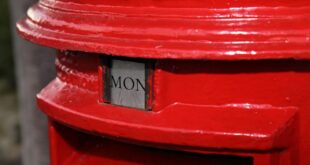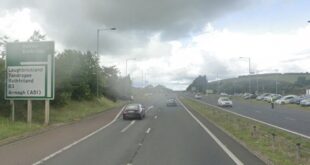Boris Johnson’s call for a general election in December is both a political and logistical gamble. Here are some potential challenges that organisers of a pre-Christmas election could face.
Winter weather
A carefully choreographed mid-December campaign could be wrecked by gales, heavy snow, ice and floods, ruining travel plans and leaving candidates grounded.
With just three weeks of formal campaigning set aside for a general election, “one week of bad weather turns your calendar on its head,” said Alistair Carmichael, the Liberal Democrat MP for the UK’s most northerly and weather-beaten constituency.
There are 34 inhabited islands in his seat of Orkney and Shetland, connected by exposed roads, with ferries and small aircraft running to reduced winter schedules. Similar challenges face candidates across Hebridean islands, which also rely on lifeline ferries and flights.
The Lake District, Welsh mountains, Pennines and south-west England are areas prone to deep snow and flooding, too. Tim Fallon, the Lib Dem MP for Westmorland and Lonsdale, said his Lakes constituency had been hit by three severe floods at this time of year in the past 15 years. The last, Storm Desmond, left 3,000 families homeless and washed away the district’s main road. “I like elections but there is an enormous risk, given the time of year, that it could be disrupted,” he said.
In the 2016 EU referendum, flash floods closed polling stations and underground stations, with commuters stranded at railway stations in London. Voters had to wade through flood waters to cast a vote.
Postal votes
Switching to postal votes may seem an obvious answer but a poll just before Christmas, organised at very short notice, presents particular challenges that rarely affect a prearranged spring or summer polls, said Laura Lock, deputy chief executive of the Association of Electoral Administrators (AEA).
If MPs decide next week to have the poll on 12 December, councils will be rushing to get postal-vote envelopes printed, but the voting papers can only be printed once nominations close on 14 November. There are only a few firms that print voting papers for every council in the UK, and they will only allow a few print runs.
The law requires there be at least 25 working days (five weeks) between calling an election and polling day. That only realistically leaves three Thursdays when the UK could have an election this year.
The key dates are:
- Call an election by 31 October for a 5 December polling date
- 7 November for an election on 12 December
- 14 November for an election on 19 December
12 December has emerged as Boris Johnson’s favoured date.
Any later seems unlikely as it will be seen as an unwelcome intrusion into the festive season – and difficult to organise, as many of the venues needed for polling stations will be busy with Christmas and holiday events.
Despite repeated assurances, Boris Johnson seems set to miss his 31 October deadline for Brexit. The ‘Benn Act’ specified 31 January 2020 as the UK’s preferred length of extension and new Brexit date, but it is possible the EU might opt for a shorter period of time to focus minds. Any EU extension is likely to be a ‘flextension’ – with a set end date, but the opportunity for the UK to leave earlier if parliament can ratify a Withdrawal Agreement.
An alternative scenario is for Boris Johnson to prefer to use an EU extension period to force his Withdrawal Agreement Bill through parliament before Christmas, exit the EU with his deal at the end of January, and then press for an election in February/March 2020 having ‘got Brexit done’.
Martin Belam
In the 2015 general election there were 7.6 million postal voters, but anyone who applies at the last moment for a new postal vote because of worries about the weather may not receive their papers in time. The registration deadline will be 26 November, but this election will hit the Christmas post. Lock said they have started talking to Royal Mail about prioritising postal ballot deliveries over normal Christmas mail. To complicate matters, postal workers are considering strike action in December.
Weather-related delays and reduced services for rural areas and islands would increase the risks of delay. Carmichael said he started nudging his constituents in far-flung islands to register for postal votes several weeks ago.
Lock recommends postal voters living overseas consider nominating a proxy in the UK to vote for them since time will be so tight. “We might really struggle to get it to the other side of the world and back in that timescale,” she said.
Venues
Councils across the UK are already struggling to find venues for polling stations and places to hold their main counts. The AEA has heard of councils finding all their normal polling stations and count venues booked up for Christmas pantomimes, festivals or office parties. In Birmingham, the major exhibition halls are booked for Christmas events.
In smaller villages, in south Cambridgeshire, for example, the pubs that used to serve as polling stations are now closed so councils are looking to use caravans instead, which, said Lock, poses significant safety and access challenges. Councils need to know venues are properly lit, are accessible to wheelchair users, and that pavements or car parks are gritted against ice and snow. Warmth is also an issue: many village halls are ill-equipped to cope with mid-winter temperatures.
Polling officers are often elderly and have to be on duty from 6.30am until 10.15pm. When the first police and crime commissioner elections were held in November 2012, they found staff were freezing cold. “Sixteen hours is a very long time to sit in a cold and draughty church hall in December,” she said.
Daylight hours
Ian Blackford, the Scottish National party’s Westminster leader, said the very short and dark winter days are a particular challenge: voters won’t welcome canvassers after dark, travelling is slower and more difficult, and most people will be focusing on celebrating Christmas with office parties, pantomimes and festive shopping.
Blackford represents the UK’s largest constituency, with Ross, Skye and Lochaber stretching across 4,600 square miles of mountains, islands and lochs from Skye to Dingwall north of Inverness. “There are large parts of my constituency where there are no street lights. It’s dark after sunset,” he said. “It raises the challenge of making sure we get to people.”
In Lerwick, the main town of the Shetland Islands, the sun rises at about 9am, sits low in the sky and sets at 3pm. Most canvassing happens early evening when voters return from work and activists are free to help. “The difficulties will be getting people to come to the door on a winter’s night and getting them to stay at the door if they do,” said Carmichael. “We can adapt to this, like everything, but it’s going to be another element of the challenge.”
Add in rain, cold and wind, it makes campaigning from street stalls harder too, again reducing the chance for voters and candidates to meet. “No one wants to stand on a street talking in December,” Carmichael adds. “I don’t want to overstate this, but it’s going to be difficult for people campaigning.”
Polling day
MPs, council officials and election experts agree the biggest test will come on polling day: bad weather could cause chaos, as could a winter flu epidemic, affecting turnout, staffing at polling stations and transport of ballot boxes.
Lock said election officers are worried about the safety risks for polling station staff travelling in darkness and potentially vicious weather to arrive at 6.30am. Count officers, count monitors, candidates and their agents will be arriving for work before 10pm at night, potentially in similar conditions.
A bad winter flu bug could see a high dropout rate in polling station staff, who are paid the minimum wage, often drop out at short notice. “We are concerned we will have a lot more. It’s very difficult to recruit staff at the moment anyway,” she said.
There are fears, too, about the challenges getting ballot papers to the count centres, particularly in remote or exposed constituencies.
Source link



